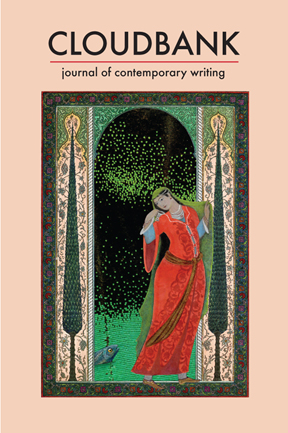
This issue includes new poems from Robert Morgan, Bruce Bond, Laurie Blauner, Gary Soto, Leslie Ullman, Alice Friman, and many others. Also included are book reviews of Creatures Among Us by Rebecca Lilly, Tarzan’s Jungle Plane by Michael Malan, and One Small Sun by Paulann Petersen.
To order this issue click here.
PRIZE-WINNING POEM
“He Wakes Up Every Morning to the Bray of Wild Burros“ by Thomas Mitchell
The Wilderness and the dry land shall be
glad, the desert shall rejoice.
—Isaiah 35
My brother writes from his hammock in the desert,
says the evening blush has gone from red to magenta,
says Yuma’s tough terrain is now soft with color,
the smell of sage. Sparrows follow one another
across the sky. He says this is a place where clouds
are easily confused with mountains, where
the occasional raptor reminds him of his proper size.
He’s not afraid of rattlesnakes or being alone.
There’s a simple satisfaction in the glow of a cigarette,
the last light of the stars sputtering like a dying
campfire, watching the Chihuahuan moon drift gently
away from Jupiter, the Seguro cactus fading
into the landscape. And when it’s time to dim the lights
on his camper, the night wind lulls him to sleep,
while the wild burros scuttle in the underbrush,
and he dreams the incomprehensible dream
of another day. Knowing there’s so much to live for,
so much one can live without.
Poets and writers in Cloudbank 14
V. Joshua Adams
Terry Allen
A. Anupama
Marcia Arrieta
Rachel Barton
Milton J. Bates
Laurie Blauner
Bruce Bond
Polly Buckingham
Christopher Buckley
Tetman Callis
Elaine Fletcher Chapman
Mark Crimmins
Alice Derry
Mary Fancher
Stuart James Forrest
Alice Friman
Molly Fuller
Ceridwen Hall
John Harn
Ingrid Jendrzejewski
Richard Jones
Karah Kemmerly
Elizabeth Kerlikowske
John Kooistra
Patrick Lawler
Adrian Lurssen
Richard Lyons
Kathleen McGookey
Robert Miltner
Thomas Mitchell
Robert Morgan
Allan Peterson
Beth Paulson
Joel Peckham
Donna Prinzmetal
Shelley Reece
Richard Robbins
Dennis Schmitz
Gary Soto
Marjorie Stelmach
Phillip Sterling
Leslie Ullman
Lyndsey Kelly Weiner
Francine Witte